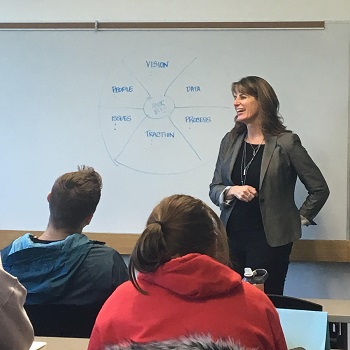Thank you for the positive response to our Effectively Efficient (Part 1) #1011 blog!
In response to your comments, I wanted to create a clear distinction suggesting where each term makes sense in terms of your success.
Early in the process, becoming effective is important. At the start of any endeavor, it’s more important to create results, show progress and build momentum. This is where the definition comes in. “adequate to accomplish a purpose; producing the intended or expected result.”
Adequacy is great when you’re new to something and working to win. We need to hit the target, and need to relieve our tendencies for precision or perfection (barring life-defining consequences). Being effective is enough; in fact, it is the impetus for long-term success. It means we got the job done. We met the requirements in the broadest sense of the terms.
But don’t stop here. Being effective isn’t sustainable.
If you’re seeking lasting results over time and you’re in pursuit of Intentional Greatness®, adequate isn’t enough. Adequate sets the table for a feast, but if you don’t become efficient, effective is readily replicated, surpassed, and improved. Others can watch, learn, and eat effective for lunch if you stop.
As soon as you’re effective, this is where efficiency becomes meaningful (“performing or functioning in the best possible manner with the least waste of time and effort”). You seek efficiency once the baseline of effectiveness is established. This means focusing, honing, and refining the best possible outcome with the least wasted time and effort to continuously improve for your desired outcome.
Obsessing here leaves you with the highest quality result over time.
Few are up for this challenge. Many stop along the way, making good enough good enough and eroding quality over time. Even more reverse the order and seek efficiency before effectiveness. This is where perfect becomes the enemy of done.
Keep it simple. Be effective, then efficient.
